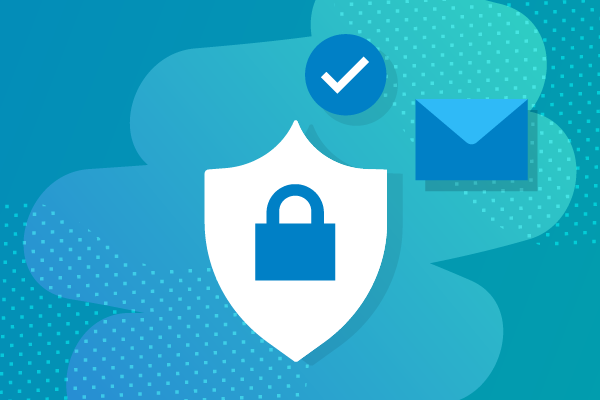What Is a Firewall and Why Is it Important in Cyber Security?
A firewall is a security device that protects your network from unauthorized access to private data. Firewalls also secure computers from malicious software, creating a barrier between secured internal networks and untrusted outside networks.
Firewalls deliver different protection levels depending on your client’s security needs. For over 25 years, firewalls have offered the first line of defense in network security systems. Read on to find out about the value of firewalls in cyber security.
What is the role of firewalls in cybersecurity?
Firewalls keep an eye on attempts by unwanted traffic to access your client’s operating system. They form barriers between computers and other networks.
Firewalls also serve as traffic controllers, managing and validating your client’s network access. Most operating systems and security software have a pre-installed firewall.
With firewalls, managed service providers (MSPs) can remove the guesswork from host-level protection. Firewalls with an integrated intrusion prevention system will block malware and application-layer attacks. In addition, they react quickly and seamlessly to detect attacks throughout your network.
Network security firewalls are invaluable in web traffic management as they minimize the spread of web threats.
How does a firewall work?
Firewalls typically welcome incoming connections that are allowed to access a network. The security systems will allow or block data packets based on existing security rules. Firewalls build checkpoints that filter web traffic. These systems let you review and act upon rogue network traffic before the attacked network experiences any adverse effects.
With a dependable firewall in place, only trusted sources and IP addresses can access your client’s systems. Some firewalls can also monitor audit logs to find connections and traffic that have gotten through.
Use firewalls to gate the borders of private networks and the host devices. Ensure that you include robust firewalls when setting up user access controls. You can set up these barriers on user computers or dedicated computers on the network.
The value of firewalls in cybersecurity
Networks that lack protection are often vulnerable to attacks. It is always helpful to vet network traffic to determine whether they are harmful or not. Once users connect personal computers to IT systems or the internet, they open the door to many potential threats. Combining resources and simplified online collaboration can come with the risk of network intrusion.
Users often face the risk of hacking, identity theft and online fraud when they expose their devices to other networks. Rogue cybercriminals can subject networks and devices to repeated threats. Easily accessible internet connections increase the risk of such network attacks.
Firewalls offer proactive protection, allowing you to surf the internet with a higher degree of safety. You can use them to filter out many potential threats on client networks.
Types of firewalls
Firewalls could either be software or hardware devices. Software firewalls are computer programs that you can install on user devices. They monitor and regulate network traffic through port numbers and applications. Hardware firewalls are the equipment you establish between your client’s network and the gateway.
Firewalls often differ based on their structure, functionality, and traffic filtering methods. Common firewalls include:
Packet filtering
Packet filtering firewalls analyze small amounts of data before distributing it according to the filter’s standards. This firewall will assess the packets’ source and destination addresses before allowing or blocking their transfer. Packet filtering also monitors the application protocols of data transfer before making a decision.
Proxy service firewall
With a proxy service, network security systems secure your client’s networks while filtering messages at the application layer. This early firewall device serves a specific application as a gateway from one network to another. The device prevents direct connections from outside the network, delivering content caching and security.
Stateful inspection firewall
A stateful inspection firewall involves dynamic packet filtering to monitor active connections and determine network packets that can pass through the firewall. This firewall blocks or allows traffic based on set protocols, states, or ports. It monitors all activity within a network and makes decisions based on defined rules and the context of previous connections and packets.
Next-generation firewall (NGFW)
Next-generation firewalls (NGFWs) offer application-level inspection for all the data packets. Next-gen firewalls can create policies that boost the network security of your clients. Additionally, they can conduct quick network assessments to alert you to invasive or suspicious activity.
Next-generation firewalls also offer application awareness and control to find and block risky apps. Deploying these firewalls gives your clients access to techniques that effectively deal with evolving security threats. Next-generation firewalls feature both standard firewall capabilities as well as integrated intrusion prevention.
Why do you need firewalls?
Firewalls are useful when you need to block application-layer attacks and malware. They are invaluable for detecting and combating rogue activity throughout your network. Adopting a firewall for your client’s security infrastructure helps you set up their network with specific policies blocking or allowing traffic.
Firewalls also provide enhanced security levels for vulnerable networks: Unauthorized users won’t be able to access private networks when you have firewalls in place. Firewalls will also secure networks against phishing attacks. Business-grade firewalls will block outflowing data when it notices a social engineering attack. In addition, you’ll receive email filtering capabilities to identify and block red flags on incoming emails.
Firewalls can also identify the signatures of dangerous users or applications and then send alerts in case of an intrusion. Your cybersecurity team can act proactively on such information to nullify threats before they cause any damage to your client’s networks and devices.
Businesses and organizations need firewalls to enjoy faster response times and an enhanced capacity to handle traffic loads. You can quickly update your network’s security protocols, using only authorized devices.
Leveraging network firewalls
Proper firewall setup and maintenance are essential in keeping your client’s network secure. Are you looking to make the most of your firewall? Here are some best practices to follow:
Use up-to-date antivirus software: Firewalls work well in synergy with other security solutions. Adding antivirus software to your client’s network security ensures that you can easily disable and resolve diverse security threats.
Update your firewall regularly: Always install firmware patches to ensure that your firewall can deal with emerging vulnerabilities. Check the network’s configuration and compatibility to get updates that ease into existing security solutions.
Create active network redundancies: Security breaches often result in costly downtime for your clients. Build active data backups to prevent data loss when security threats breach your firewalls, so you can minimize downtime.
Use allowlists to limit network accessibility: An allowlist is a list of email addresses ro domains that you have approved. Create an allowlist of trusted IP addresses to keep out untrusted inbound and outbound connections. Also, minimize user access privileges to create a proactive security approach. You can also limit cross-communication internally with segmented networks to prevent lateral movement by malicious cybercriminals.
Secure your client’s networks with firewalls
As cyber criminals find new ways of breaching networks, businesses need robust network security solutions to secure their networks. Do you need help setting up firewalls for your clients?
Partner with Datto for reliable network security solutions. Learn more about Datto Networking Routers – https://www.datto.com/products/routers/



